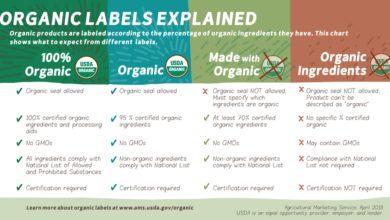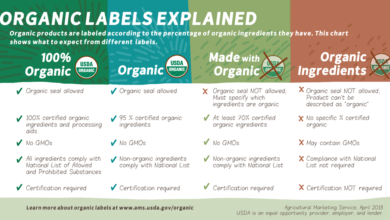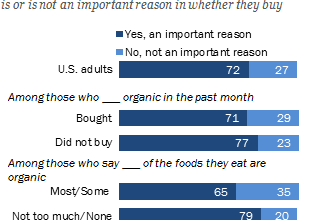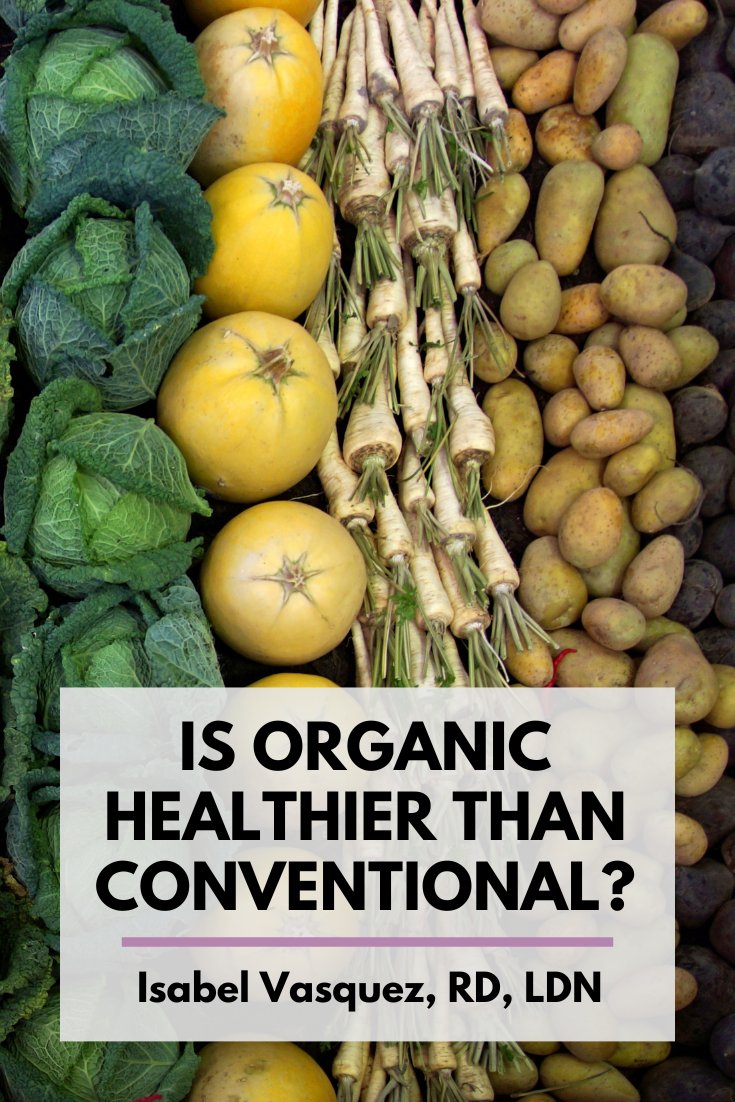
Is Organic Food Proven to Be Healthier
Yes, organic food can be healthier. But, it’s not always clear-cut.
Let’s explore why. Organic food has gained popularity for its perceived health benefits. Many people choose organic foods to avoid pesticides and additives. They believe these foods offer more nutrients and fewer chemicals. But is this belief backed by science?
Understanding what “organic” truly means is key. It’s about how food is grown and processed. Organic farming avoids synthetic pesticides and fertilizers. It often promotes better soil and water quality. These practices can lead to healthier food. Yet, the debate continues. Some studies suggest organic food has more nutrients. Others find little difference. So, is organic food really the healthier choice? Let’s delve deeper to find out.
Organic Food Basics
Organic food has become a buzzword in health-conscious circles, but what does “organic” really mean? You might wonder if choosing organic is just a trend or if it holds genuine benefits for your health. Understanding the basics of organic food can help you make informed decisions about what you put on your plate.
Defining Organic
Organic food is grown without synthetic pesticides, fertilizers, or genetically modified organisms (GMOs). It’s all about going back to nature and embracing traditional farming methods.
Imagine biting into a fresh apple from a tree untouched by artificial chemicals. It feels like connecting with the earth, doesn’t it? Organic farming prioritizes soil health, biodiversity, and sustainability, aiming to produce food that’s not just good for you, but also for the planet.
Certifications Explained
You’ve likely seen labels like “USDA Organic” on products, but what do these certifications mean? They indicate that the food meets strict guidelines set by certifying bodies. These standards ensure that the farming practices avoid synthetic inputs and protect environmental resources.
Think of it as a seal of trust. When you see a certified organic label, you know the product has been vetted thoroughly. This can give you peace of mind when choosing what to eat.
However, not all certifications are created equal. Some might have loopholes, so it’s wise to research what each certification stands for. Are you ready to dig deeper and decide what matters most to you?
Choosing organic isn’t just about health; it’s about values and the impact on our world. Are you willing to explore the benefits of organic food and decide if it’s the right choice for you?
Nutritional Content
Organic food often contains fewer pesticides and chemicals. Many believe it is more nutritious. Scientific evidence remains mixed, with some studies showing minor differences. Yet, the preference for organic foods continues to grow.
When considering the health benefits of organic food, nutritional content is often at the forefront of the discussion. Many people wonder whether organic produce truly packs more vitamins and minerals compared to conventional options. Others are curious about the antioxidant levels in organic foods and how they might impact overall health. Let’s take a closer look at these aspects to help you make informed choices for your diet. ###Vitamins And Minerals
Organic foods are often touted for their higher vitamin and mineral content. Studies suggest that organic fruits and vegetables may have more vitamin C, iron, and magnesium. This is partly because organic farming practices aim to enrich the soil naturally, which can result in more nutrient-dense produce. Imagine picking an apple from your local organic farm. You might not notice a difference at first, but that apple could offer you a boost in essential nutrients. However, it’s important to note that the nutritional differences can vary depending on the type of produce and farming methods. Have you ever wondered if washing your conventional produce removes pesticides but also essential nutrients? With organic produce, you might worry less about that trade-off. ###Antioxidant Levels
Antioxidants play a crucial role in protecting your body from harmful free radicals. Some research indicates that organic foods may contain higher levels of antioxidants. This could be because organic plants naturally produce more antioxidants as a defense mechanism against pests and diseases. Consider the organic strawberries you buy at the market. They might be smaller, but they could be packed with more antioxidants compared to their larger, conventionally grown counterparts. This might mean better support for your immune system and overall health. You might ask yourself: Is the higher price of organic foods justified by these potential benefits? It’s a personal decision, but knowing that organic options may offer more antioxidants could be a factor in your choice. In your journey to healthier eating, understanding the nutritional content of organic foods can be enlightening. Whether it’s the potential for more vitamins and minerals or the promise of higher antioxidant levels, these insights could guide your grocery shopping decisions. What are you looking for in your food, and how does it align with your health goals?Chemical Exposure
Organic food often contains fewer synthetic chemicals, reducing potential chemical exposure. Studies suggest it can be healthier due to its lower pesticide levels. Nutrient content may vary, but less chemical residue is generally beneficial for health.
When you think about the differences between organic and conventional food, chemical exposure is a key factor. Many people are concerned about the chemicals used in agriculture and how they might affect health. Let’s dive into how pesticides in conventional farming compare to organic options and why reduced chemical exposure can be beneficial for you.Pesticides In Conventional
Conventional farming often relies on synthetic pesticides to protect crops from pests and diseases. These chemicals can remain on produce even after washing, potentially entering your body. Some studies suggest a link between pesticide exposure and health issues, sparking concerns among consumers. Imagine grabbing an apple from a supermarket, not knowing how many pesticides have touched it. This uncertainty can be unsettling. Opting for organic may help reduce this worry, as organic farming uses natural pest control methods.Benefits Of Reduced Chemicals
Choosing organic foods can lead to lower pesticide exposure, which might improve your health. Organic farms use natural fertilizers and pest control techniques, which means fewer synthetic chemicals end up in your food. Think about how you feel after a home-cooked meal made with fresh, organic ingredients. Many people report feeling better, knowing they are consuming fewer chemicals. Plus, reducing chemical exposure benefits the environment by maintaining healthier soil and cleaner water sources. Is it worth paying a little extra for organic produce? For many, the peace of mind and potential health benefits are a worthwhile investment. How about you—do you believe reduced chemical exposure makes a difference?
Credit: www.upmcmyhealthmatters.com
Environmental Impact
Organic food is often praised for its environmental benefits. Many people believe it contributes to a healthier planet. Choosing organic can reduce pollution and improve soil health. It supports sustainable farming methods that respect the earth.
Sustainable Practices
Organic farming uses techniques that protect natural resources. Farmers avoid synthetic chemicals and fertilizers. This keeps waterways clean and ecosystems healthy. Crop rotation and composting enrich the soil. These methods build resilience against pests and diseases.
Organic farmers prioritize renewable resources. They often use solar or wind energy on farms. This reduces carbon footprints. Sustainable practices minimize waste. Recycling and reusing materials are common. This helps reduce the environmental impact significantly.
Biodiversity Benefits
Organic farms often support diverse plant and animal life. Varied crops attract beneficial insects. These insects help control pests naturally. Birds and other wildlife thrive in organic fields. This creates balanced ecosystems.
Monoculture crops can harm biodiversity. Organic farming promotes diverse planting. This encourages healthier soil and plant growth. It also helps protect endangered species. Organic farms are often havens for native plants and animals.
Biodiversity improves resilience against climate change. Diverse ecosystems adapt better to changing conditions. This makes organic farming a crucial part of environmental conservation.
Health Outcomes
Organic food is a popular choice for many who want to eat healthy. People often wonder if it really makes a difference in health outcomes. Here, we explore the impact on chronic diseases and gut health.
Impact On Chronic Diseases
Organic foods contain fewer pesticides and chemicals. This may lower the risk of developing chronic diseases. Some studies suggest organic food can reduce heart disease and diabetes risks. Eating organic may also help manage weight better. With fewer additives, the body responds positively.
Gut Health Considerations
Organic foods often have more nutrients. This can benefit gut health significantly. A healthy gut supports a strong immune system. Organic foods are rich in fiber, enhancing digestion. They encourage the growth of good bacteria in the gut. Fewer chemicals mean less disruption to gut flora.
Economic Factors
The economic factors of organic food often spark debate among consumers. Many question whether the higher price tag justifies the benefits. Let’s explore the financial aspects of organic foods, focusing on cost comparison and market trends.
Cost Comparison
Organic foods typically cost more than conventional foods. This price difference stems from several factors. Organic farming practices require more labor. These methods avoid synthetic pesticides and fertilizers. Organic farms often yield less produce per acre. This results in higher costs for consumers.
Transporting and storing organic foods also adds to the expense. Organic products often need special handling to prevent contamination. This increases logistics costs, further raising prices. Shoppers might feel the pinch, but some see it as an investment in health.
Market Trends
The demand for organic foods continues to grow. More consumers seek healthier and environmentally-friendly options. Supermarkets now allocate more shelf space for organic products. This trend shows a shift in consumer preferences.
Farmers respond by increasing organic food production. Organic food sales have risen steadily over the years. This growth indicates a strong market presence. Despite higher prices, the popularity of organic foods persists. People are willing to pay more for perceived health benefits.
Consumer Perceptions
Consumer perceptions play a significant role in the organic food debate. Many wonder if organic truly means healthier. Public opinion varies widely, influenced by factors like marketing and personal beliefs. Let’s explore how these perceptions shape the view on organic food.
Public Opinion
Public opinion on organic food is diverse. Some consumers swear by its health benefits. They believe organic food is free from harmful chemicals. Others remain skeptical, questioning the evidence. Many rely on their personal experiences. Some families choose organic to reduce exposure to pesticides. Others prefer it for environmental reasons. Public opinion often shifts with new research findings.
Organic labels often imply better quality. This can influence consumer choices. People trust organic products for their perceived purity. This perception is widespread, though not universally accepted. Public opinion can be swayed by word of mouth. Friends and family recommendations carry weight. Public opinion varies by region and culture.
Marketing Influence
Marketing plays a crucial role in shaping perceptions. Advertisements often highlight organic food as superior. This influences buying decisions. Companies use strategic branding to promote organic benefits. Packaging often features green imagery. This reinforces the idea of natural goodness. Marketing messages can be persuasive. They often focus on safety and health claims.
Many consumers are influenced by health-focused marketing. They believe organic food is safer. Companies capitalize on this perception. Organic brands use storytelling to connect with buyers. This creates emotional appeal. Marketing strategies often emphasize sustainability. This attracts environmentally-conscious consumers. Organic labels can create a sense of trust. Marketing shapes how people view organic food.
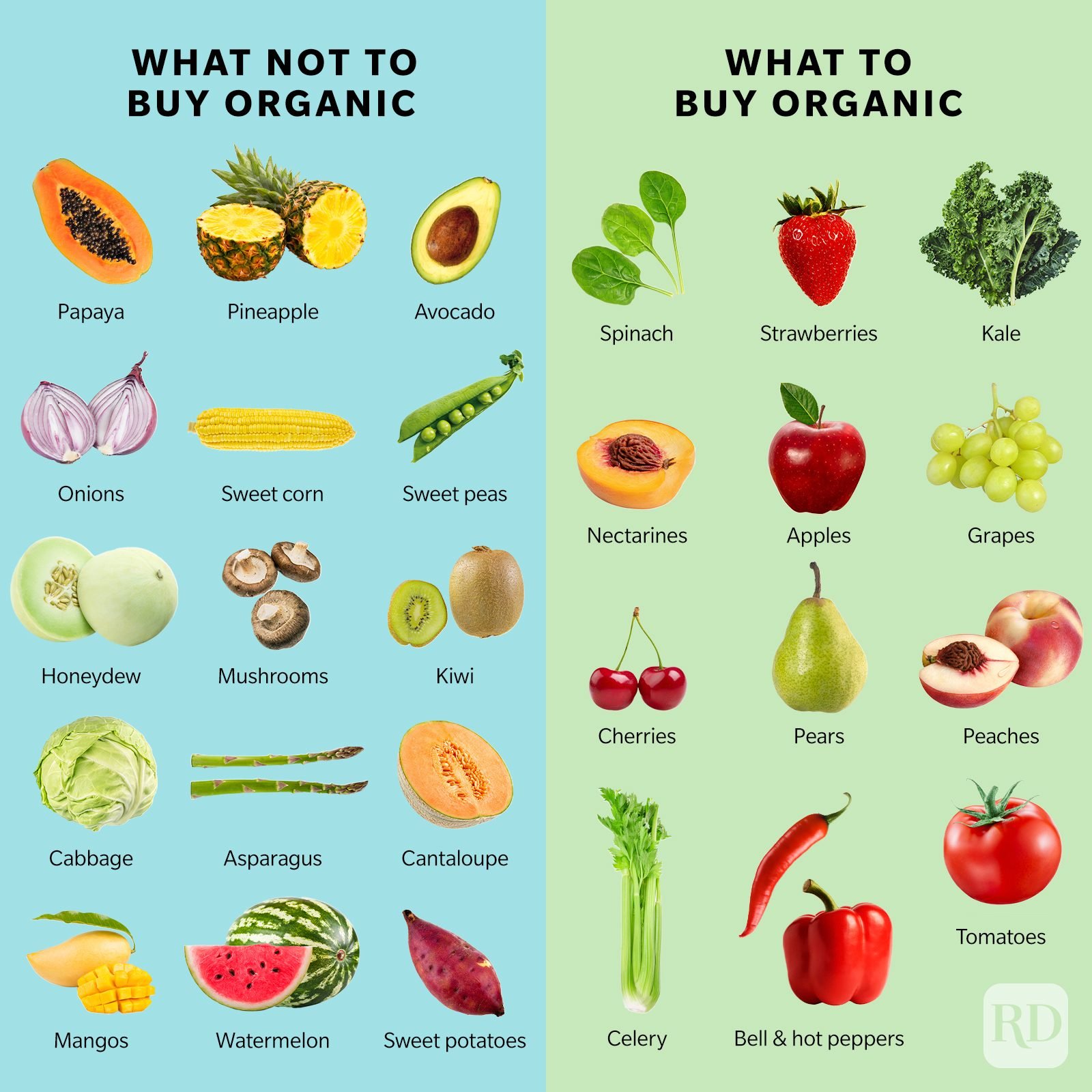
Credit: www.rd.com
Future Research Directions
Exploring future research on organic food’s health benefits is crucial. Studies should focus on nutrient content, pesticide exposure, and long-term health effects. Understanding these aspects can provide clearer insights into whether organic food is truly healthier.
As the debate over organic food’s health benefits continues, future research directions could shed light on unanswered questions. Scientists and nutritionists are eager to explore how organic farming methods might influence nutritional content and overall health. Your curiosity about whether organic food is genuinely healthier is valid, and forthcoming studies aim to provide clarity.New Studies
Recent studies are beginning to focus on long-term health outcomes associated with consuming organic food. Researchers are examining whether organic produce can significantly reduce the risk of chronic diseases like heart disease and diabetes. Imagine a future where choosing organic could directly impact your longevity and quality of life. In addition to health outcomes, scientists are investigating the environmental benefits of organic farming. These studies aim to understand the impact of organic practices on biodiversity and soil health. Could your choice to buy organic contribute to a more sustainable planet?Potential Areas Of Exploration
There are several promising areas for future exploration in organic food research. One such area is the effect of organic diets on gut health. Early evidence suggests that organic produce might promote a more diverse gut microbiome, but more research is needed to confirm this. Another intriguing area involves the comparison of pesticide residues in organic versus conventional foods. Understanding these differences could help you make informed choices about what you and your family eat. Nutritionists are also interested in how organic farming affects the nutritional value of food. Does the absence of synthetic fertilizers and pesticides result in more nutrient-dense fruits and vegetables? These questions are at the forefront of ongoing research efforts. As you navigate your food choices, consider how these future research directions might impact your decision-making. What new findings could emerge that might change how you view organic food? Stay informed and curious, as the answers may soon be within reach.
Credit: www.health.harvard.edu
Frequently Asked Questions
Is There Any Evidence That Organic Food Is Healthier?
Some studies suggest organic food may have higher antioxidant levels. Evidence on overall health benefits is still inconclusive. Organic produce often has lower pesticide residues, which could be healthier. More research is needed to confirm definitive health advantages. Always consider individual health needs and preferences when choosing food.
What Are Some Disadvantages Of Organic Foods?
Organic foods often cost more due to higher production expenses. Limited shelf life can lead to quicker spoilage. They may have less variety and availability compared to conventional foods. Organic certification processes can be complex and costly for farmers. Nutritional differences between organic and non-organic foods are often minimal.
Is It Actually Worth It To Buy Organic?
Buying organic can be worth it for avoiding pesticides and supporting sustainable practices. Organic foods often have higher nutritional value. They can be more expensive, but prioritize organic for high-pesticide produce like strawberries and spinach. Evaluate personal health goals and budget to decide if organic fits your lifestyle.
Is There Scientific Consensus About Organic Vs Conventional Foods?
There is no complete scientific consensus on organic vs. conventional foods. Studies show mixed results on nutritional differences. Some research suggests organic foods may have fewer pesticides and higher antioxidants. However, both types are considered safe. Personal preferences and environmental concerns often influence consumer choices.
Conclusion
Organic food may offer some health benefits. These include fewer pesticides and more nutrients. Yet, the difference may not be significant for everyone. Choosing organic is a personal choice. It depends on values, budget, and health goals. While organic options are popular, balance is key.
Eating a variety of foods is essential. Both organic and non-organic can fit into a healthy diet. Always wash produce well before eating. This reduces pesticide residues. Consider what matters most to you. Health, cost, or environmental impact. Your choice should align with your lifestyle and needs.



